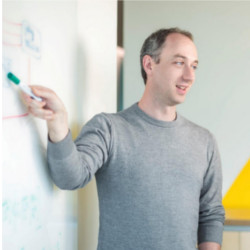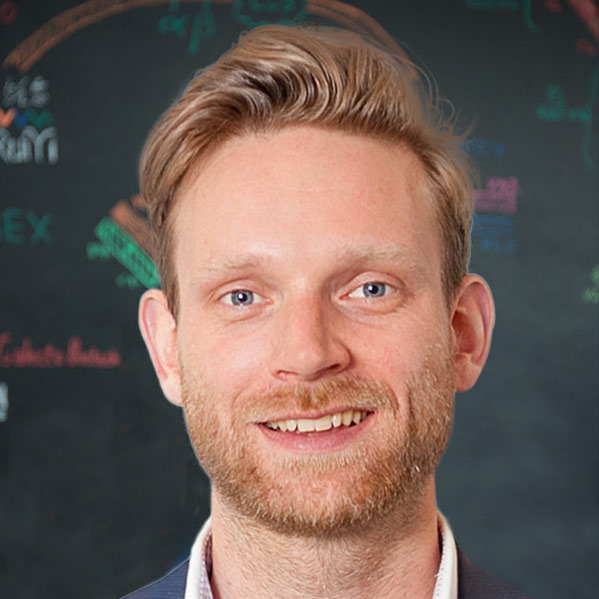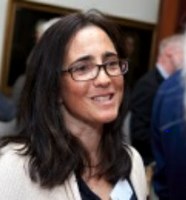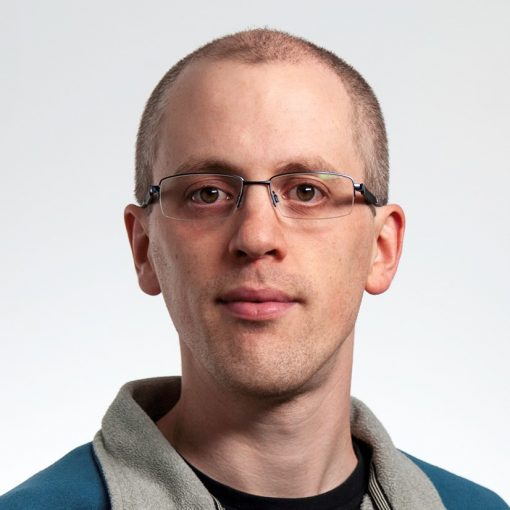DPhil in Mathematics, University of Oxford
| Quantitative Researcher | |
|---|---|
| Susquehanna International Group, Ltd | |
Postgraduate take-away: Confidence to attack difficult problems and persist
What is your background?
I am a mathematician. In my opinion, mathematics is the purest art form, by far the most beautiful, and the deepest. I have loved mathematics for as long as I can remember, and for most of my formative years I expected to pursue a career in academic mathematics. Even after having chosen a different path, I remain helplessly, and joyfully, addicted to mathematics.
I did my doctorate in geometry at Oxford. Though the experience was challenging, it was magnificent to witness, and even to participate in, the birth of new mathematics for the first time in my life.
Having said all that, I have long had a keen parallel interest: technology. I think I got hooked more or less immediately after I hacked out my first scraps of code in my mid-teens. Though a pure mathematician, I enjoy applications.
Why did you move away from academia?
Deciding not to pursue a career in academia was hard. It was a decision I came to gradually over at least a year. Ultimately, I decided that academia required compromise on too many fronts simultaneously. I had in mind: financial security, job security, and the freedom to choose the city in which I would live. Considering the academic path, I expected to have to wait perhaps a decade before I had any of these.
Another influence was a friend pointing out that there exist research-based roles in industry, and that quant roles tend to blend this in a satisfying way with technology. The idea that my research might be applied in impactful ways was appealing. With these thoughts in mind, I started to learn the basics of how financial markets operate. I recall that it felt like peeking behind the curtain! An entire world, previously unknown to me, suddenly came into view. I entered it.
What is the work like?
The work is varied and draws on a range of skills, e.g., statistics, data analysis, market understanding, software engineering, and mathematical intuition. The relevance or importance of a particular skill varies substantially over time and from project to project.
I find that the common theme is extreme attention to detail. Before I took the job, somebody described it to me by means of the following analogy, which I think still applies: many other market participants might calculate the price of an instrument they observe to, say, four decimal places. These are often good approximations, but not perfect. By means of (sometimes extraordinary) additional effort, we calculate the fifth and sixth decimal places and so are able to spot very subtle market inefficiencies.
A challenging but ultimately appealing aspect of the job is the fact that competitors are usually quite highly skilled. We survive only by continuously innovating, and by staying up to date with everything from the latest exchange features, to new software frameworks or hardware possibilities. There is even room for one’s own taste to play a role. For example, a person especially interested in, say, signals analysis or neural nets might find a way to nurture their interest, while simultaneously helping their team stay up-to-date.
Job highlight: Applying cutting-edge technology; working with talented colleagues; high impact of decisions I make; continuous learning necessary
What is the company culture?
Culture is hard to capture in a few words.
I hesitate to use a cliché, but must emphasise that there is a good work-life balance at SIG. I work hard but I do not work long hours, and I always work at a sustainable pace. This is not guaranteed in this sector, and is something I value highly.
There is a competitive streak running through the office, which is essentially an expression of the nature of our work. A concrete manifestation of this is the high rate of participation in the annual company poker tournament. I still attend each year and usually get knocked out just as I begin to believe I’m going to do well for once!
We also take pride in what we do. There is satisfaction in knowing that we’re one of the top providers of certain financial services.
What were your transferable skills?
At the nuts and bolts level, literacy in basic mathematics, coding, and basic statistics, were my directly transferable skills.
My doctorate, though its subject matter is of no direct relevance, was nevertheless the single most important experience. It taught me how to attack open-ended problems which may start out imprecisely-defined, as opposed to exercises from a book or exam. In other words, it taught me how to research.
Almost all the skills I now use were developed while I was at SIG. I believe the most important attributes are rather down to earth: attention to detail, diligence, persistence, and curiosity.

SIG is a global quantitative trading firm founded with an entrepreneurial mindset and a rigorous analytical approach to decision making. We commit our own capital to trade financial products around the world. Our Quantitative Researchers (quants) solve mathematical puzzles found in the financial markets and process vast amounts of data, both formidable and computational, to identify profitable trading opportunities. Our traders, quants, developers, and systems engineers work side by side to develop and implement our trading strategies. Each individual brings their unique expertise every day to help us make optimal decisions in the global financial markets.
Job highlight: Applying cutting-edge technology; working with talented colleagues; high impact of decisions I make; continuous learning necessary





